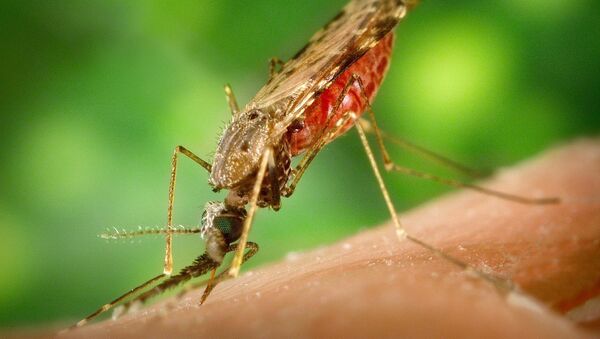A team of ornithologists from the University of Lund led by biology professor Staffan Bensch are seeking to catch as many birds this summer in Sweden's southernmost province of Skåne to take blood samples. The purpose of the study is to understand the mechanism behind the spread of malarial parasites.
"It's clear that it's stressful for the birds, but it only takes a few minutes until they are released," Staffan Bensch told Swedish Radio.
So far, between 40 and 50 malaria parasite species have been found to prey on the migratory birds. According to researchers, a warmer climate will inevitably make it easier for the parasites that have hitched a ride from Africa to spread among the local fauna, first and foremost among birds that stay in Sweden all year long.
"Since the local birds have not been exposed to these parasites for a very long time and lack an immune system to take care of them, they may get very sick. I do not think any species will actually die because of this, but we can see big fluctuations in the population with possible consequences for the ecosystem," Staffan Bensch said.
"It would be almost unlikely if it would not happen," Staffan Bensch said.
It is a lesser-known fact that malaria once was a common disease in Sweden harvesting thousands of lives until the beginning of the 20th century. The last recorded domestic case of malaria occurred in 1933.
The reason why malaria became eradicated is probably a combination of draining works and improved living standards. To be smitten with malaria, one has to be bitten by a disease-carrying parasite. When the economic situation started to take off in Sweden in the late 1800s, living conditions also improved, as fewer people slept in the same room, thus impeding the spread of the disease.
Malaria bears strong links to prosperity in the country and is known as a poverty disease. However, it is mostly associated with a damp climate and landscapes rich in waterways and marshlands. The word malaria is of Italian origin and is literally translated as "bad air" because mosquitoes were only identified as the main cause of the disease in the late 19th century.
Earlier this year, a study by researchers from Stockholm University, the Swedish University of Agricultural Sciences and the KTH Royal Institute of Technology established that malaria mosquitoes prefer to feed on the blood of malaria-infected patients that release more carbon dioxide and volatile compounds with an irresistible smell to the mosquitoes.






